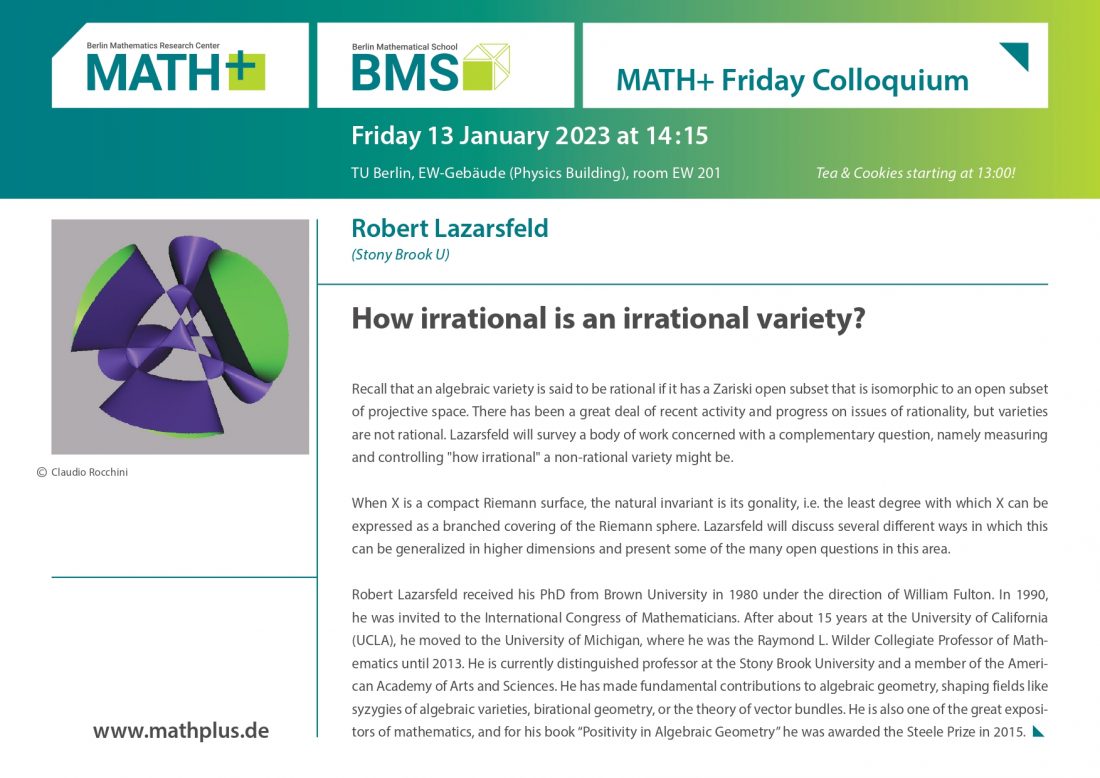04.01.2023
In
Events
13 January – Robert Lazarsfeld: How irrational is an irrational variety?
Recall that an algebraic variety is said to be rational if it has a Zariski open subset that is isomorphic to an open subset of projective space. There has been a great deal of recent activity and progress on issues of rationality, but most varieties are not rational. Lazarsfeld will survey a body of work concerned with a complementary question, namely measuring and controlling “how irrational” a non-rational variety might be.
When X is a compact Riemann surface, the natural invariant is its gonality, i.e. the least degree with which X can be expressed as a branched covering of the Riemann sphere. Lazarsfeld will discuss several different ways in which this can be generalized in higher dimensions and present some of the many open questions in this area.
When X is a compact Riemann surface, the natural invariant is its gonality, i.e. the least degree with which X can be expressed as a branched covering of the Riemann sphere. Lazarsfeld will discuss several different ways in which this can be generalized in higher dimensions and present some of the many open questions in this area.
Robert Lazarsfeld received his PhD from Brown University in 1980 under the direction of William Fulton. In 1990, he was invited to the International Congress of Mathematicians. After about 15 years at the University of California (UCLA), he moved to the University of Michigan, where he was the Raymond L. Wilder Collegiate Professor of Mathematics until 2013. He is currently distinguished professor at the Stony Brook University and a member of the American Academy of Arts and Sciences. He has made fundamental contributions to algebraic geometry, shaping fields like syzygies of algebraic varieties, birational geometry, or the theory of vector bundles. He is also one of the great expositors of mathematics, and for his book “Positivity in Algebraic Geometry” he was awarded the Steele Prize in 2015.


